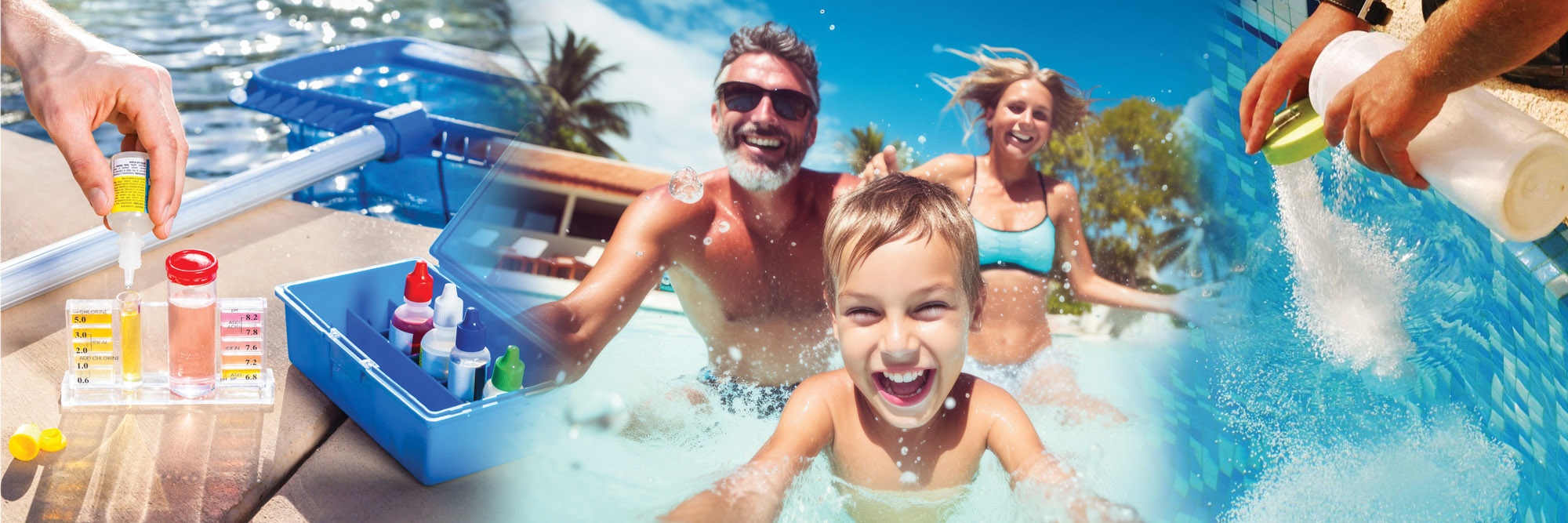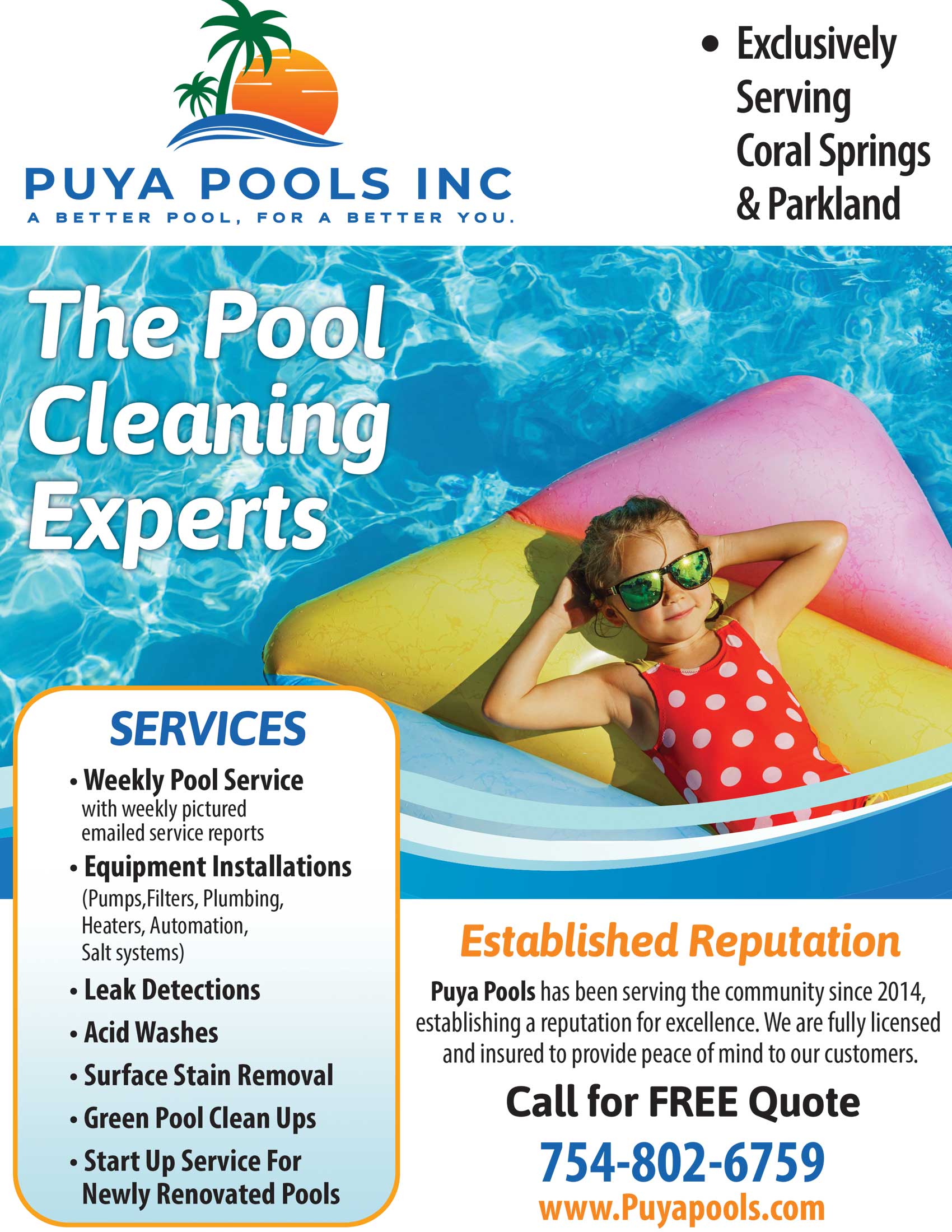Puya Pools has been a trusted name in pool care throughout Coral Springs and Parkland for over 11 years. As we dive into the hottest (and soggiest) part of summer, Mike Puya wants to talk about chemistry—and no, you don’t need to relive sophomore science class.
Well-spoken and clearly passionate about his profession, Mike starts with the basics: “The elements affect a pool’s chemistry the most. The sun beating in, the amount of rain we receive, our skin absorbing some of the chlorine, sunscreen, tanning oil—there are many factors. Having a big pool party will definitely throw off your pool’s chemistry.”
One of the biggest misconceptions? Saltwater versus chlorine pools. Despite what you’ve heard, both are equally susceptible to chemical changes and need regular maintenance.
With a team servicing more than 600 pools weekly, Mike says chemistry always comes first. For those tackling DIY pool care, Mike offers this advice: “On a weekly basis, you need to make sure that you are checking your pool water, brushing, and making sure that the pool is balanced, because if you let it go 10 days to two weeks, you can lose that stabilizer level and then things get out of sync.”
Even screened-in pools aren’t immune to Florida’s blazing sun. UV rays constantly deplete chlorine levels, making stabilizer your pool’s unsung hero. “Stabilizer is EXTREMELY important to maintain your pool,” Mike explains. “When that level starts to drop, you may notice green water, which will be followed quickly by algae bloom.”
What about “shocking” your pool? Mike clears up the mystery: “Over time, if you’re not brushing and maintaining proper chemistry, there will be an algae buildup. At that point, you will add chlorine, and then if you add shock, it will amplify the chlorine. Over time, algae builds a resistance to the chlorine.”
He cautions against shocking your pool regularly—it’s a tool, not a weekly ritual. “It’s that regular maintenance you have to do, especially during summertime and rainy season,” he adds. “All of the elements and the actual usage of the pool put a beating on the water chemistry. You have to be checking those levels at least once a week.”
Mike also reminds us not to cut corners on energy use.
“Some people think it’s OK to only run their pump a few hours a day. It is extremely crucial to make sure that the pump is running a minimum of at least eight hours a day and make sure that filter is up-to-date and is replaced at least once a year.”
As hurricane season looms, Mike offers essential advice:
“The most important thing I can say about this time of year is, if there is a storm coming, DO NOT drain your pool! When you drain that balanced pool water out, you’re allowing that fresh diluted water to pour in, and once the storm passes, it will be easier to get the chemical balance back.”
And don’t worry about flooding: “Many people worry the pool is going to flood their house, but every person’s pool has been built with a slight pitch away from the house, so that’s not going to happen.”
Finally, Mike gives a little chuckle and shakes his head,
“The other thing I’m told is that people want to throw their patio furniture into the pool. If they have metal patio furniture, that’s going to cause all kinds of problems with the chemistry and with the metal itself. That’s going to rust and stain the surface of your pool as well as ruin your patio furniture.”
Before a storm, Mike recommends flipping the breakers and shutting off your pool equipment. Once it’s safe, get your water tested and rebalanced.
If this all sounds like a lot—Puya Pools is happy to help. With weekly maintenance and helpful storm alerts via email, Mike and his team keep your pool healthy and hassle-free.



